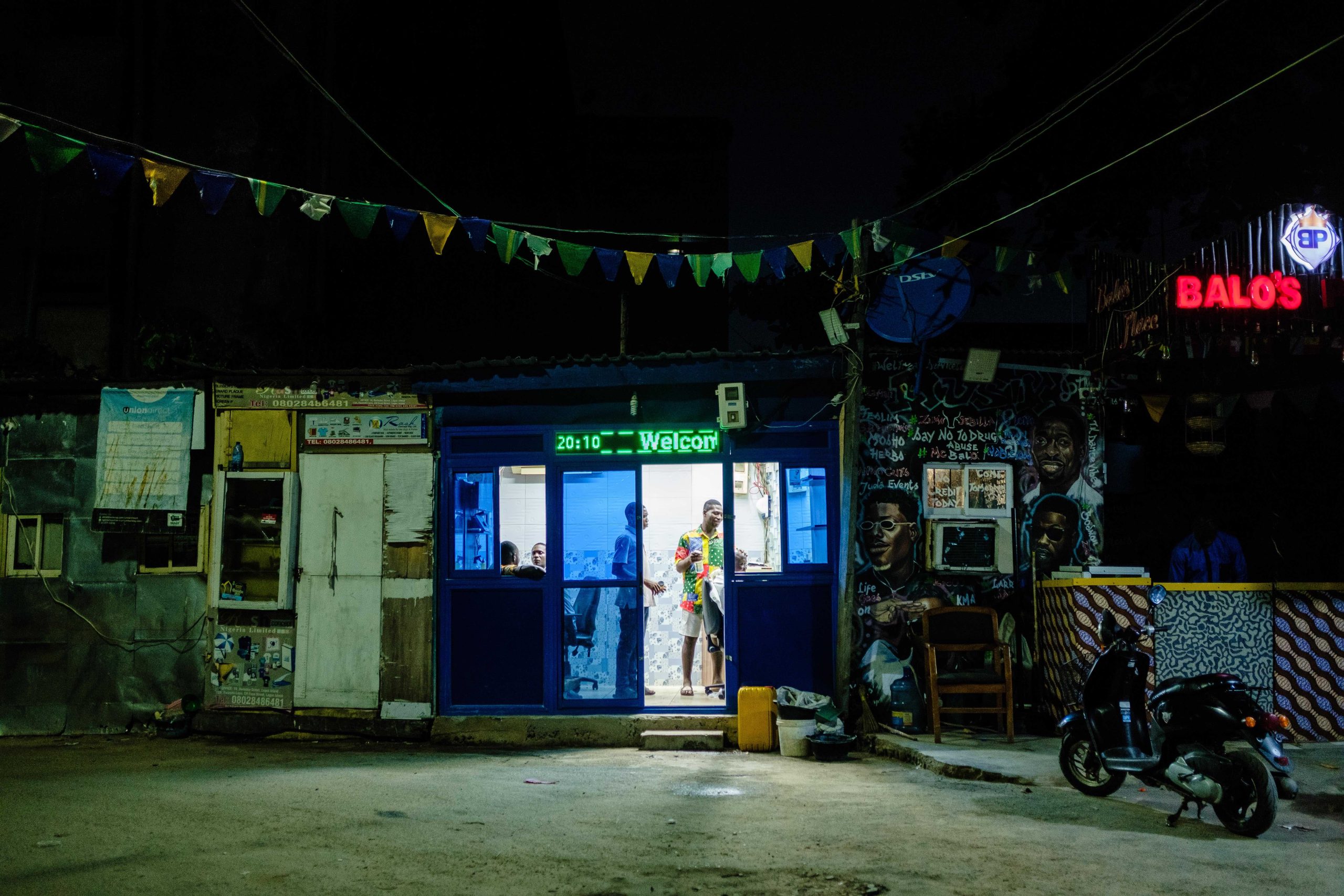CULTURE
Iya-Eba’s Legacy
Lagos no Send Anybody
The story of Lagos, or at least a major section of it, will be incomplete without a chapter on those who provide the fuel needed to keep the people of this megacity constantly moving: street food. Consider Iya Eba restaurant, which for more than 50 years has contributed to the history of Lagos one plate at a time.
STORY: AYOOLA OLADIPUPO
photography: jean-fidèle Ananou
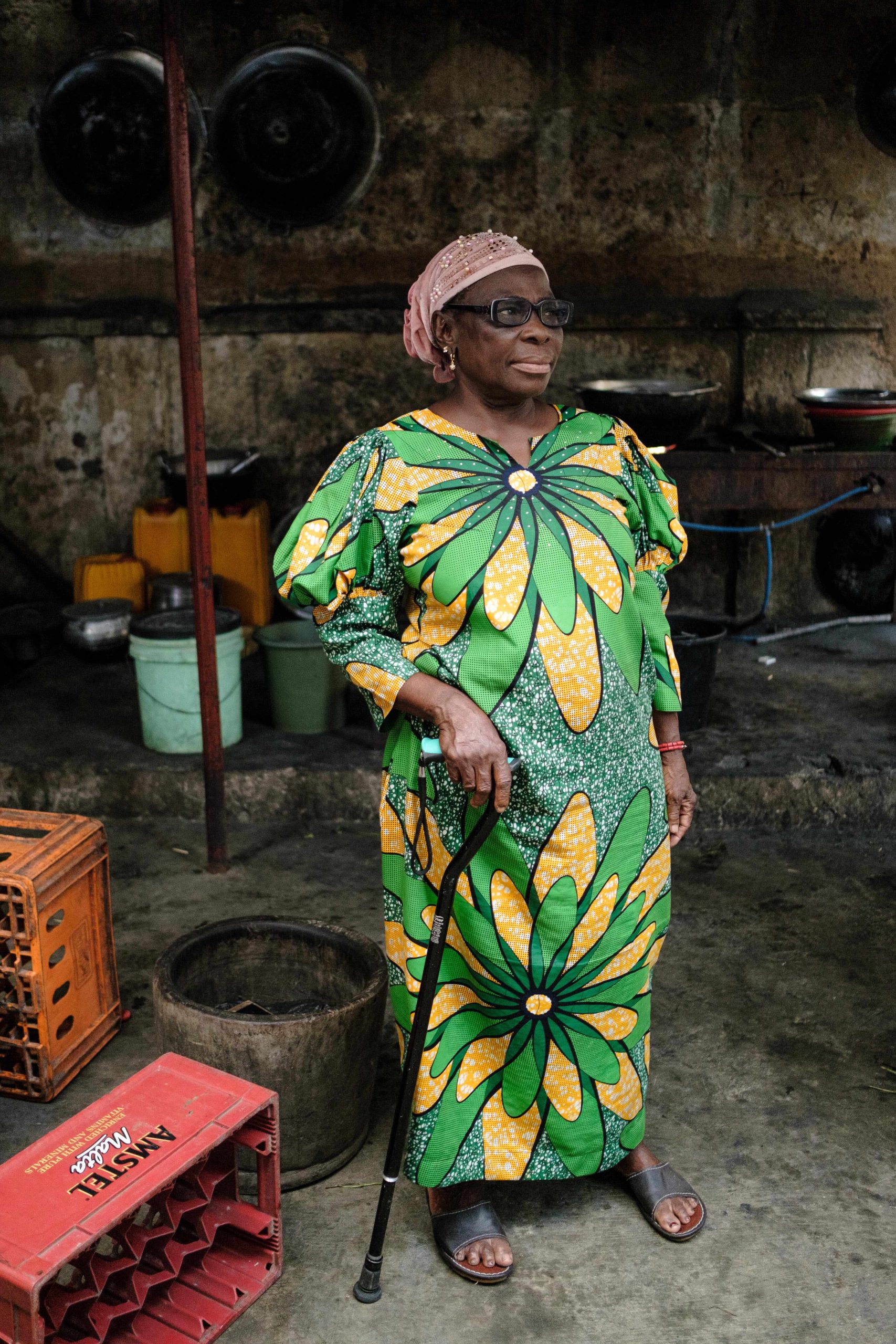
I have had the pleasure (or sometimes, displeasure) of calling Lagos home for two years now. Not home in the true sense—this is an honour I prefer to reserve for Ibadan—but more in the way one mindlessly utters, ‘I’m going home’ after a tiring day at work. Aptly described by Nigerian writer, Chimamanda Ngozi Adichie, as having the self-confidence of a city that knows it matters, Lagos is a city that never stays still. The chaotic, yet orderly way in which yellow buses find their way out of Obalende bus park first thing in the morning is a sight to behold (preferably, once). Lagos has a predictable unpredictability; unpredictable in that, as you sit in traffic on your morning drive to work, you could see an otherwise normal man taking a shower by the side of the road dressed in nothing but boxer shorts (as though to let people know that he is not mentally challenged: a ‘madman’); yet predictable in the sense that it doesn’t quite surprise you to see the same man finely dressed in a sky blue button-up shirt and black slim fitting trousers moments later. Much like this man, Lagos no send anybody.

Although Lagos has been known as the fast-paced economic nerve centre of Nigeria for over a century, the city’s hustle has seen an unmatched vigour in the last decade. The typical young Lagosian’s day, leaving home as early as 4 a.m. to return at 11 p.m., does not leave much time for preparing instant noodles, much less time-consuming traditional foods. As a result, a large proportion of the city depends on street food stalls and local restaurants, known as bukas, for their daily bread. The proportion of household food expenditure spent on foods prepared outside the home in Lagos increased from 3 three per cent in 2010 to 35 per cent in 2019, highlighting the drastic shift in the city’s food culture in the past decade. Over time, local restaurants have become increasingly important to sustenance and the local economy, and more subtly, have become custodians of food heritage. One of such custodians is Iya Eba, a 50-year-old buka in the heart of Lagos.
The first day I set out to speak to Iya Eba for this essay, I drove down from Oniru, through bougainvillea-lined residential streets in Victoria Island and the tangible lavishness of Ikoyi; both upscale areas in Lagos. With an uncharacteristic mindfulness, I noticed several skyscrapers or towers, as they are fondly called as if to emphasize their relatively humongous size, that were not here when I first moved to Lagos two years ago. FF Towers, Trinity Towers, Kings Towers, Heirs Towers, all settled into their place as though they’ve been there all along. Lagos is a city changing more quickly than we can even measure; from estimates of a six million population in 2007’s census, to over 20 million in 2018 according to some estimates, nobody really knows the city’s current population given the extraordinary rate at which people move here from all over Nigeria and its neighbours. Almost everything in Lagos seems as though it is living on borrowed time, soon to be replaced by the next thing. Lagos is a city in a hurry, one that knows deep down that there is a chance it won’t be around for much longer; and with rising sea levels due to climate change, there is indeed a decent chance that a good portion of the city will be underwater in my lifetime.
Berkeley Street: The calm within the storm
Right in the midst of all this change and novelty, sits the historic Onikan, a part of ‘Old Lagos’, which was a commercial centre in Lagos during its colonial days. The area now hosts landmarks such as Onikan Stadium, the oldest stadium in Lagos, and the Nigerian National Museum. With its colonial street names like King George V Road and McCarthy Street, some parts of Onikan feel like a defiantly static part of Lagos that truly doesn’t send anybody. Iya Eba Restaurant, an unassuming custodian of Lagos’ heritage, is located at 14 Berkeley Street. Flanked by King George V Road and McCarthy Street, both areas that feature in the enthralling story that is Iya Eba’s, Berkeley Street embodies the duality (orderly chaos and predictable unpredictability) of Lagos.
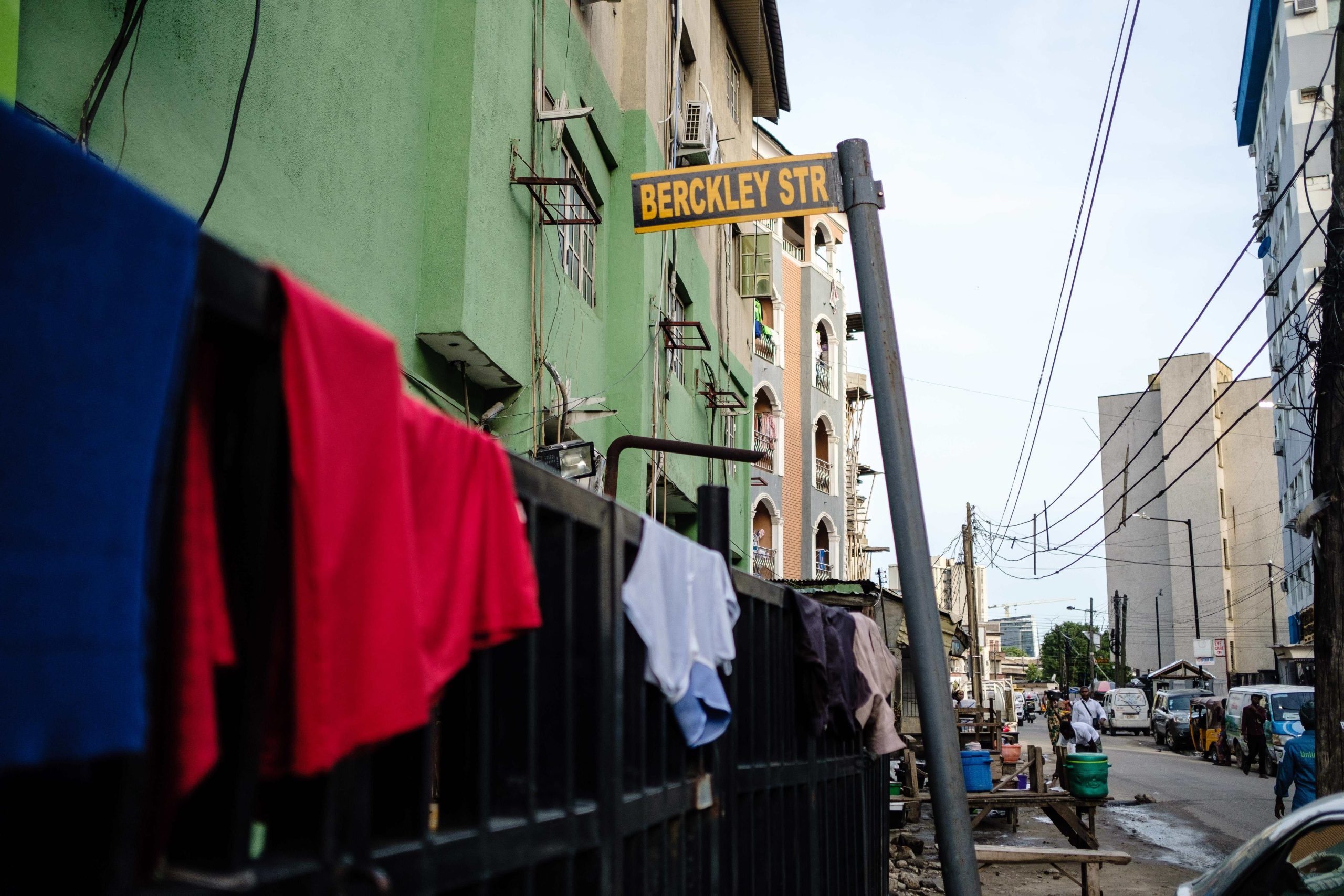
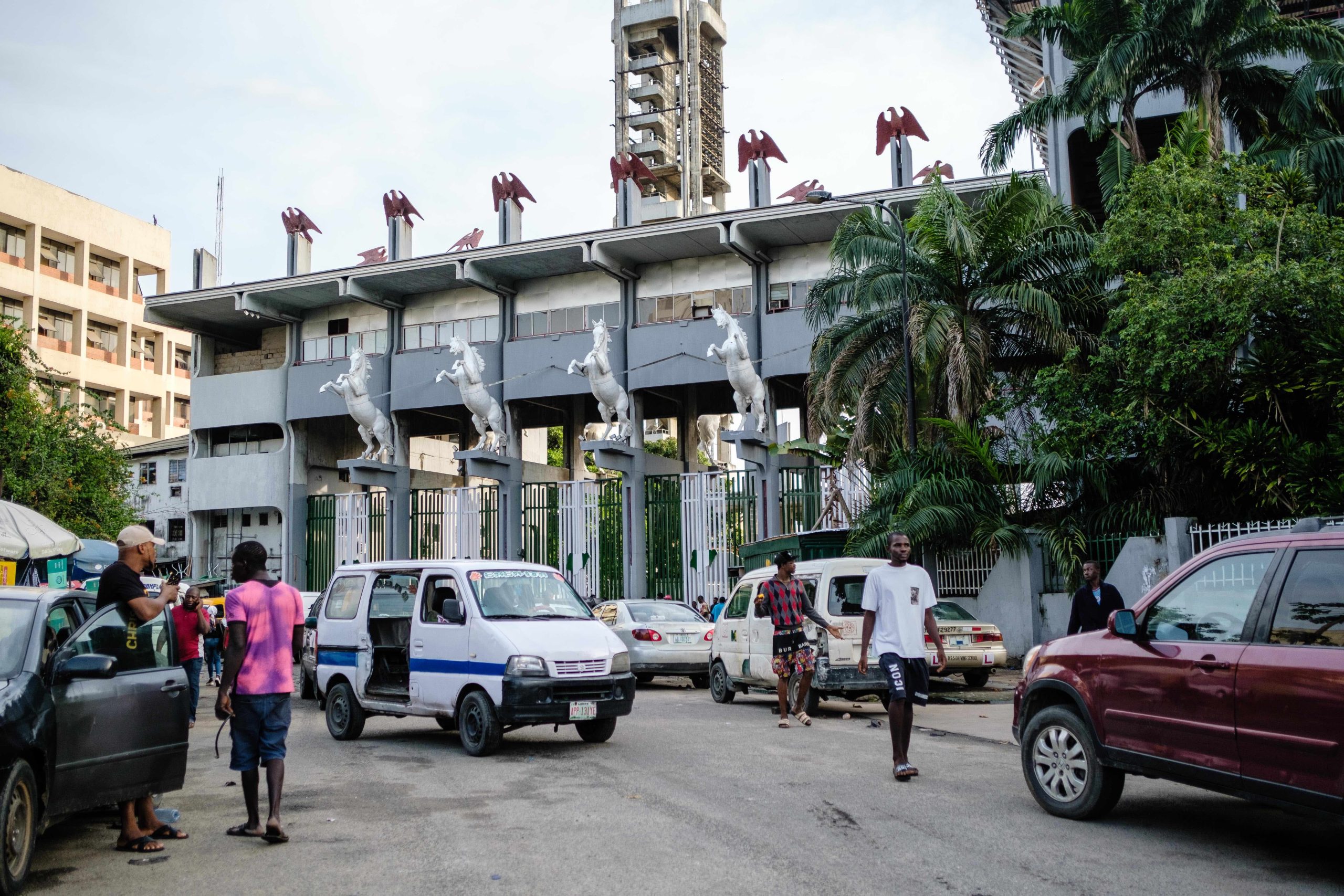
Lined with seemingly 50-year-old carnival flags, Berkeley Street during the day appears like an area of Lagos Island that did not get the memo that the carnival has been over for a long time. The memo that the people now live in gated houses within gated estates, go to supermarkets designed to limit human interaction to the cash register and eat at restaurants where it would be unthinkable for one to join a party of three on a table for four. At night, with speakers blaring music from a lounge at the end of the street, people (usually a number of young men) playing snooker, and others engaging in loud conversation over food and drink, Berkeley Street appears like an area that did not get the memo that the people now squeeze themselves into small indoor clubs and pay up to five times the market value for drinks because social convention dictates so. At the epicentre of the vibrations on Berkeley Street is Iya Eba, an iconic member of the community which continues to provide its people with affordable traditional food and a vibrant social space. According to Mr. Sunday, a community member who owns a restaurant on Adebayo Doherty Road in the more upscale Lekki area and yet eats at Iya Eba almost every day, ‘this place feels like home’.
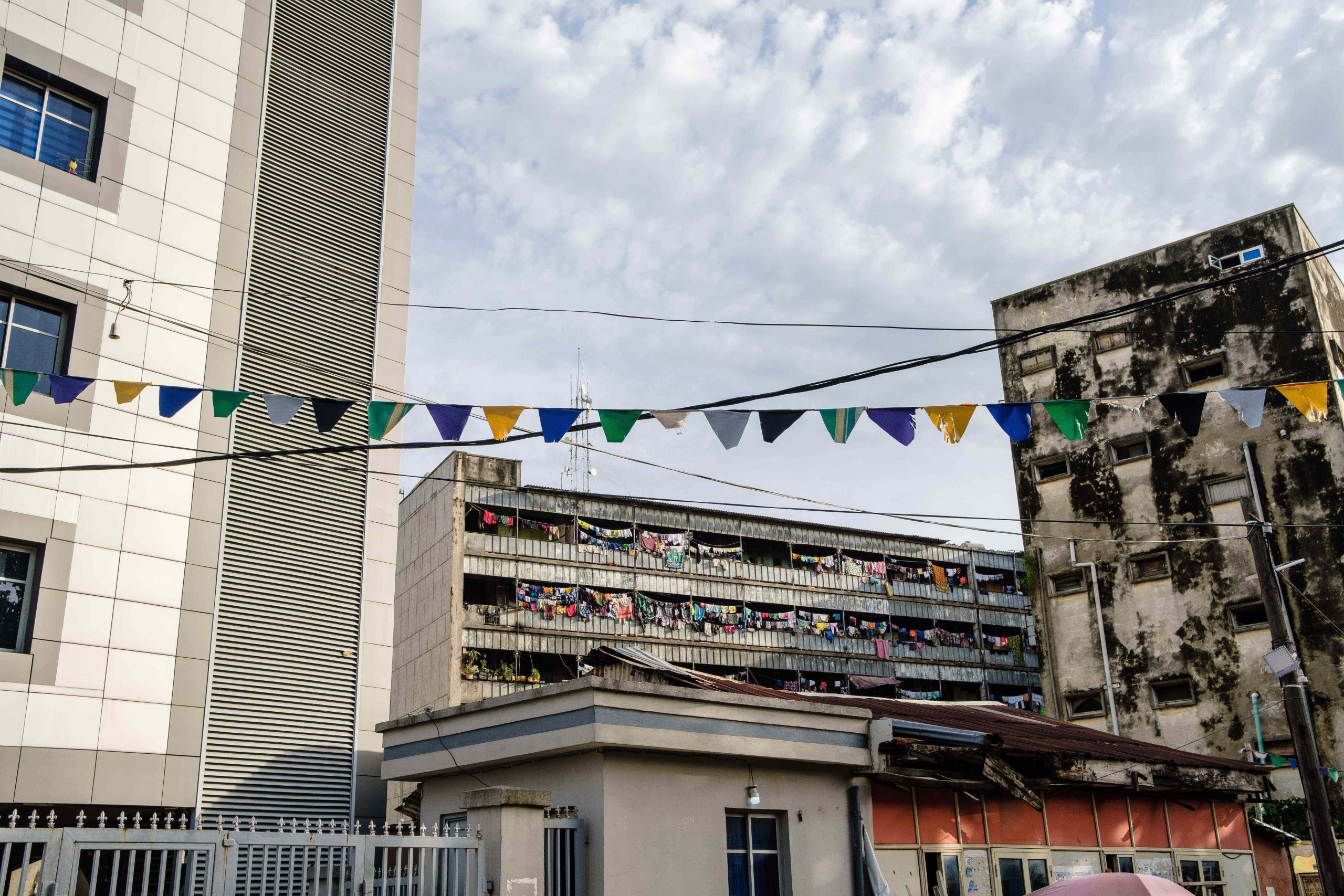
BECOMING IYA EBA
The matriarch in charge of Iya Eba since its inception, ‘Iya Eba’ herself, is Alhaja Fausat Adebayo; an energetic 76-year-old woman whose story is one of industriousness, resilience and love for community. You’ll typically spot her—although you probably wouldn’t guess it—sat outside the restaurant from 7 p.m., enjoying the cool breeze and engaging in conversations like just another customer.
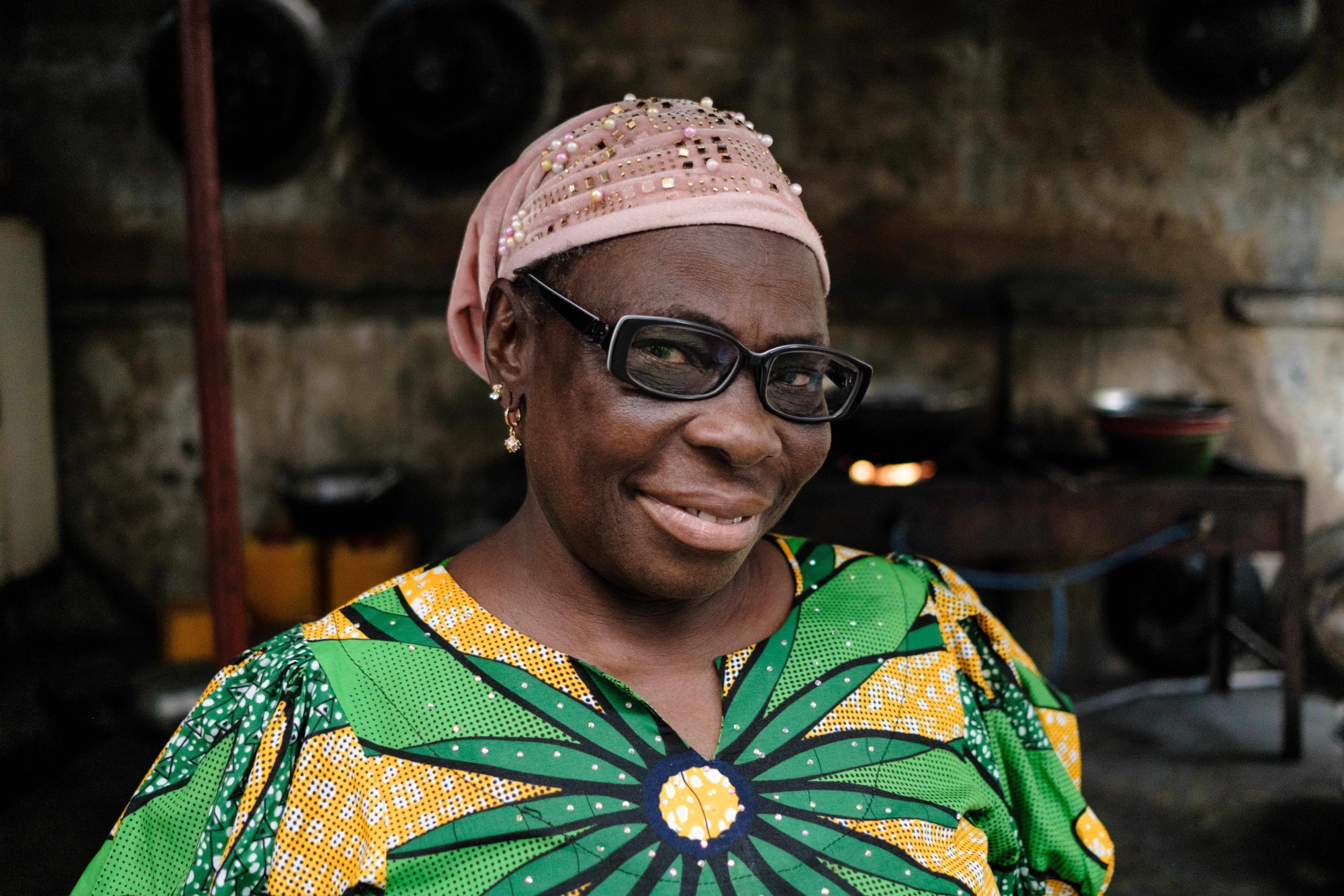
Alhaja Adebayo moved to Lagos in the 1950s, when she was seven (a time when she would have been called just Fausat by most) to work as a help in the house her aunt lived, and sold amala from, at 32 King George V Road. She worked here through her teenage years and until the birth of her second child. At this point, owing to her ambition and entrepreneurial spirit, she set up her own small food stall on the same King George V Road. Over a refreshingly spicy bowl of catfish pepper soup, her children, Tunji and Bukky, narrated how narrow the space was: ‘It was a very small place that couldn’t have more than a few people at a time… people would come in during their break from work to have a quick meal and head back out after a few minutes.’
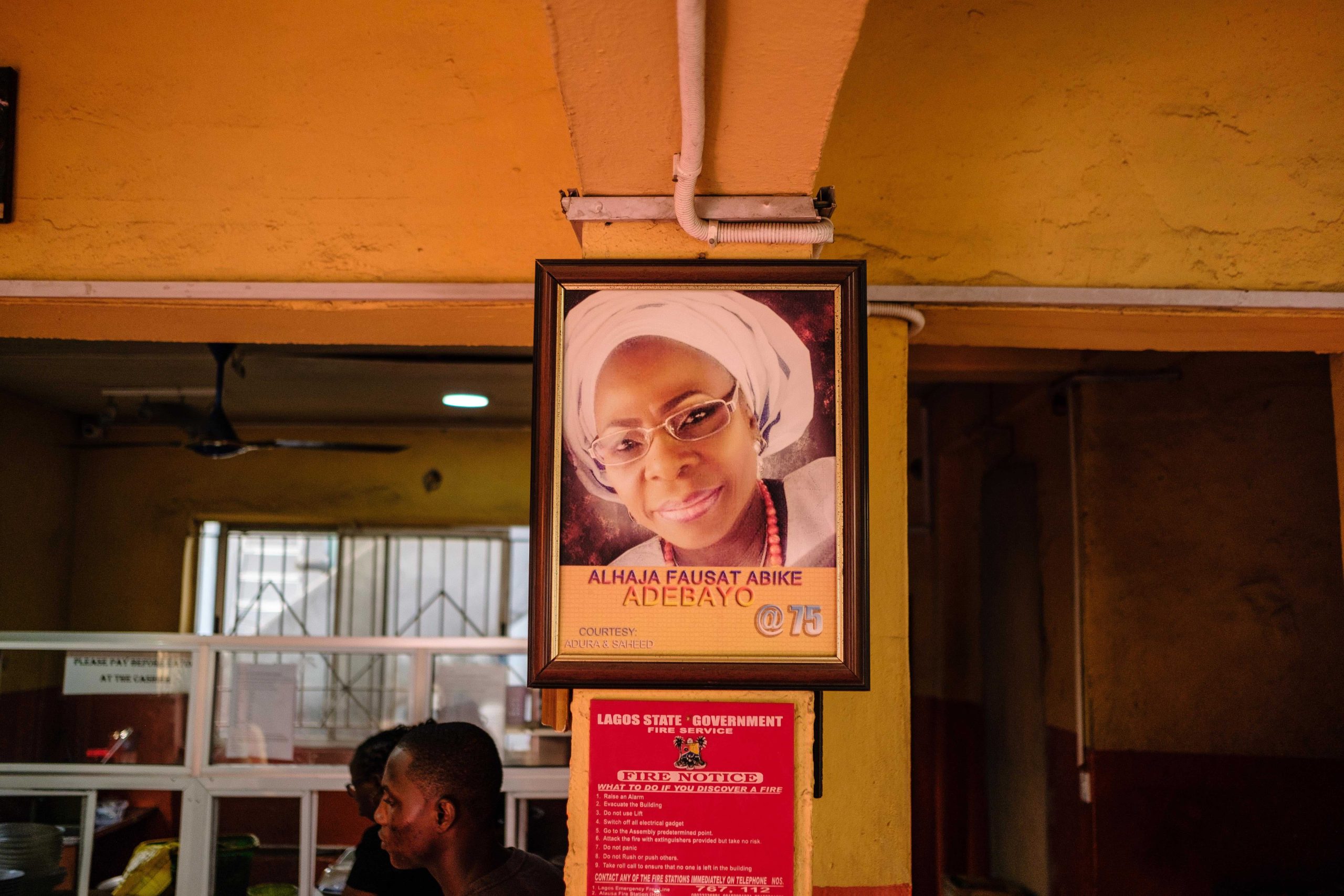
Unfortunately, this venture was short-lived due to the loss of her husband in 1982 and inability to make sufficient sales to sustain her family’s upkeep. She set up a small provisions store, selling basic groceries, on the same street. Again, this venture was short-lived due to insufficient sales. ‘I had periods where I had nothing, I even sold my clothes to feed my children,’ Alhaja Adebayo recounts. Not one to be deterred by setbacks, she decided to go back into the food business. However, she could not go back to 32 King George Road as the previous owners had sold the property, and her search for a new home for her business led her to Berkeley Street. This would mark the beginning of a 38-year journey on Berkeley Street, and the official birth of Iya Eba, a name she says was given to her by her customers.
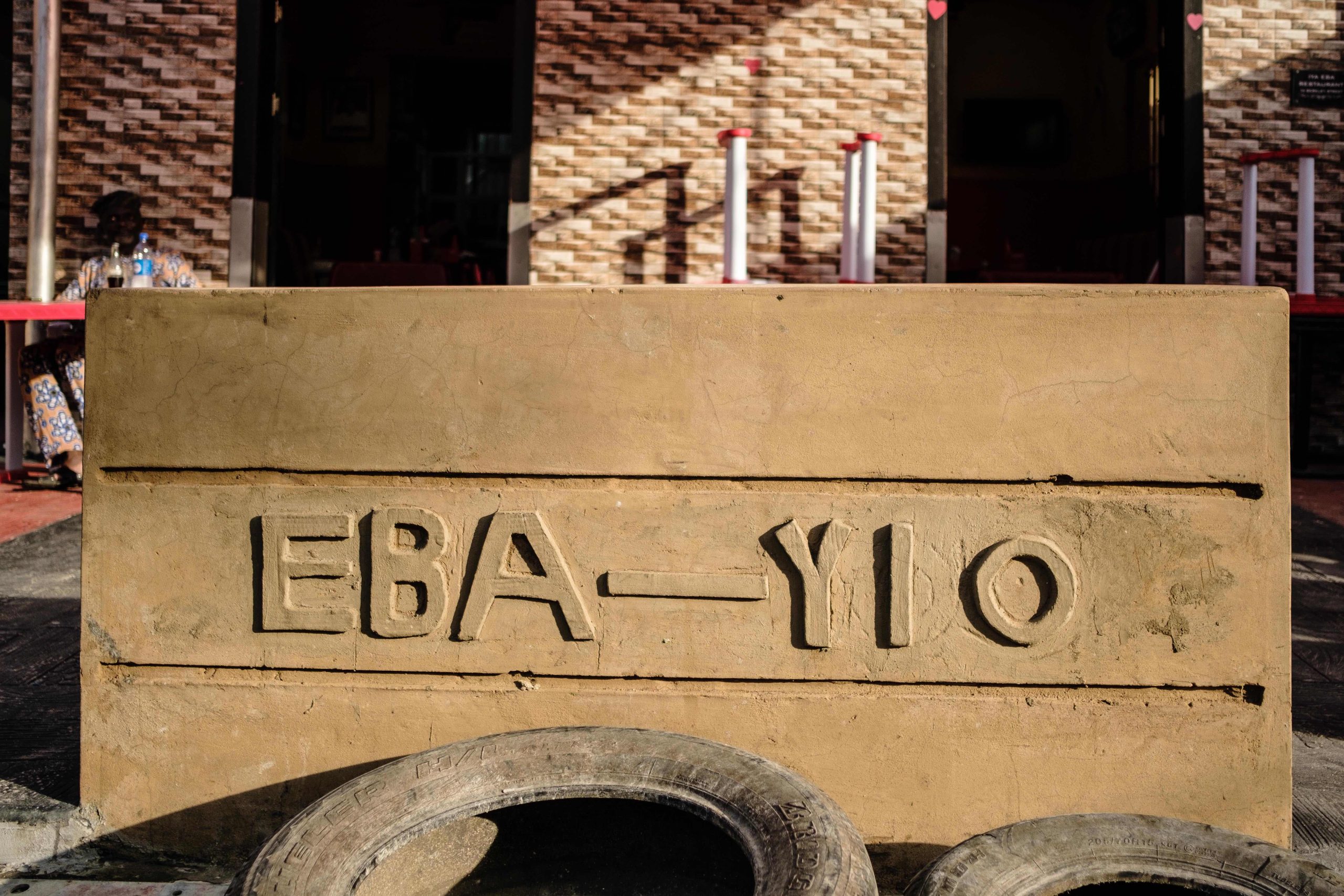
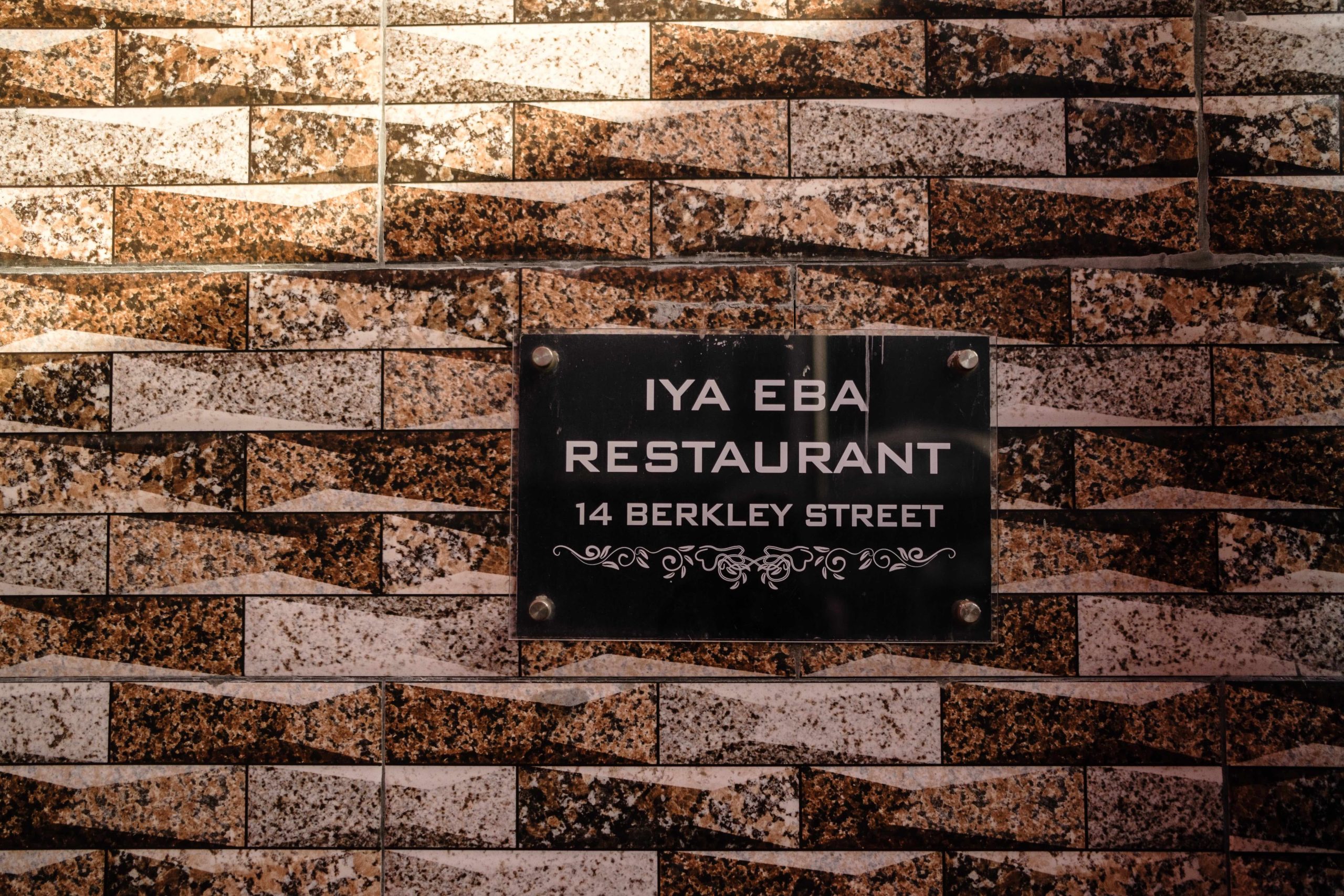
She was able to rent out land at 1 Berkeley Street—massive compared to her previous location on King George V Road—since the owners had not begun any developments on the land. This time, however, she had a partner, who would pack some of the cooked food and hawk it on the adjacent McCarthy Street, which was bubbling with economic activity. This shift proved to be key, with the business finally picking up to her satisfaction. She remained at 1 Berkeley Street for several years, growing her customer base and establishing Iya Eba as a go-to in the Onikan community. Eventually, she had to move again in 2005 due to the owners of the building finally deciding to use their land. She rented a building down the road on 10 Berkeley Street, which housed Iya Eba and her customers until 2020, during the Covid-19 pandemic. At a time when businesses within the country and around the world were severely struggling and many forced to shut down, Iya Eba found an opportunity to buy the building on 14 Berkeley Street. This was no easy task, evidenced by the weight of the silence that preceded her narration of the story. In April 2020, with millions struggling to make ends meet as a result of the enforced lockdowns, Lagos State government contracted four bukas as vendors in its daily food kitchen programme aimed at providing free food to the vulnerable in certain communities. Befittingly, Iya Eba was the chosen representative of the Onikan community. While this partnership with the government brought about much needed sales given the outlay on the new building, Alhaja Fausat mentioned how this was an opportunity to give back to a community, in its time of need, which had given her so much over the years.
‘Now we own this building, this is no longer just a buka, this is Iya Eba legacy,’ her son Tunde gleefully remarked. During the first of several visits to 14 Berkeley Street for this essay, my first impression was that this location felt right. The building epitomizes the atmosphere of Berkeley Street, and to a lesser extent, Onikan as a whole. The building is a visibly recently refurbished structure; outside, one is greeted with brown tiled walls, before stepping in to bright, orange-coloured walls and Coca-Cola-sponsored tables and chairs with their trademark red colour. All this novelty is covered by a visibly old rusty brown steel-pan roof, as though protecting the establishment from the heavy rain that is a rapidly changing Lagos. After walking along the Berkeley Street and its neighbouring streets, taking a few photos and soaking up the surprisingly calm atmosphere, I ordered my food—eba with beef stew and ewedu—at about 7:30 p.m. and joined a party of three, who seemed happy to have me, on a table of four. As Berkeley Street was morphing into its night form, Alhaja Adebayo came out of the kitchen to join one of the tables outside—regular customers from the way they exchanged pleasantries—sharing some drinks and keenly observing all the action along the street. The next time I visited the restaurant, Iya Eba walked over to my table, where I was enjoying a bowl of catfish pepper soup, and gave me kuli-kuli, a snack made from peanuts. I keenly observed her as she went around, giving kuli-kuli to other people, smiling and making the odd joke here and there. I understood then, how she could keep this place running for such a long time.
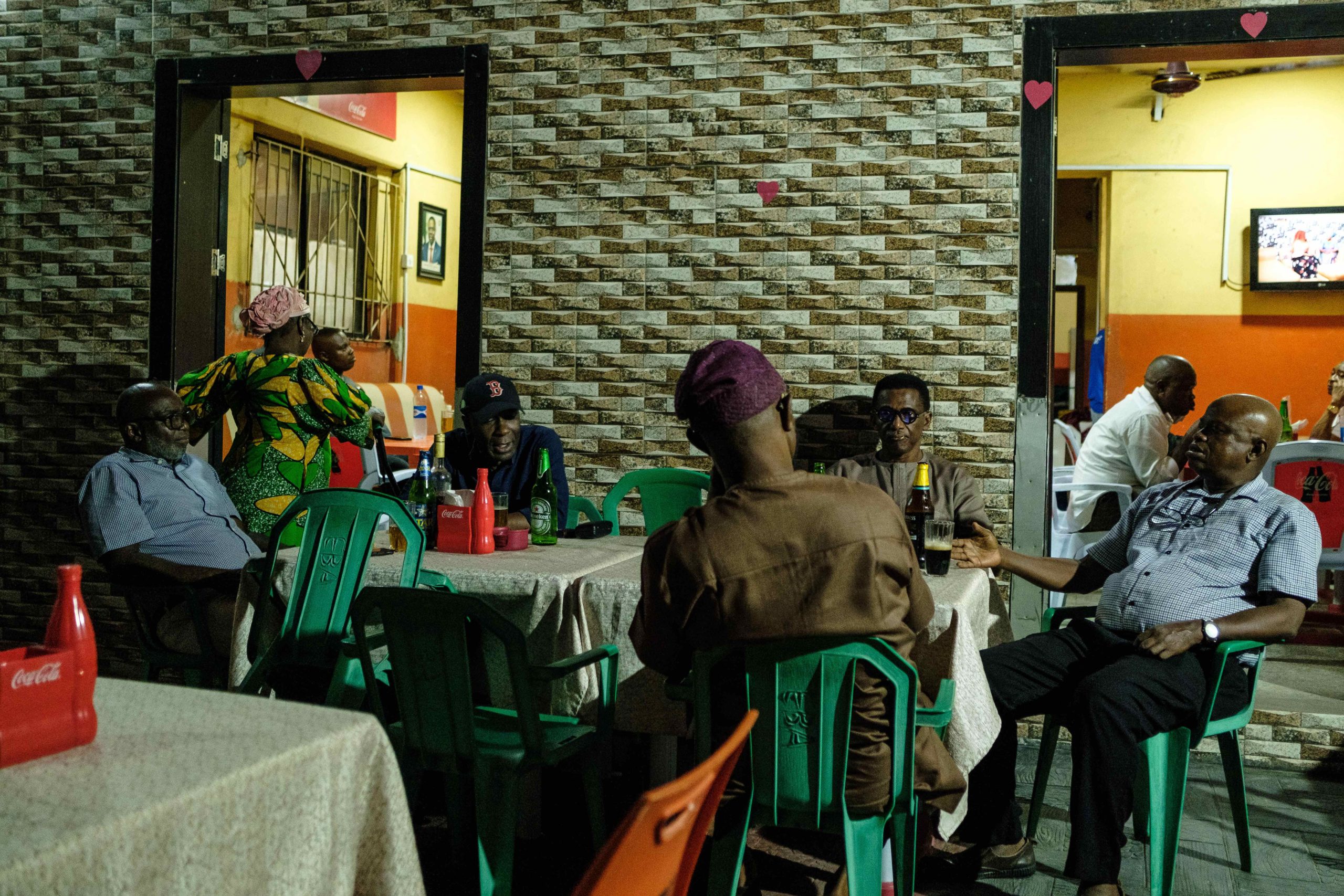
BEHIND THE KITCHEN DOOR
Almost 70 years after coming to Lagos for the first time, Alhaja Adebayo now employs over ten women in her kitchen, each very aware of their role in this orchestra which Iya Eba directs every day. She comes into the kitchen every morning before her employees arrive to prepare for the activities of the day ahead; when they arrive, they report to their stations. Some focus on swallows (eba, amala and pounded yam), pounding in almost melodic, yet arduous, synchronization. Some focus on boiling rice and preparing a variety of vegetables. Some focus on washing the meat and fish for the preparation of the pepper stew which, in traditional Yoruba cuisine, is eaten with everything relevant. All are directed and supervised by Alhaja Adebayo.
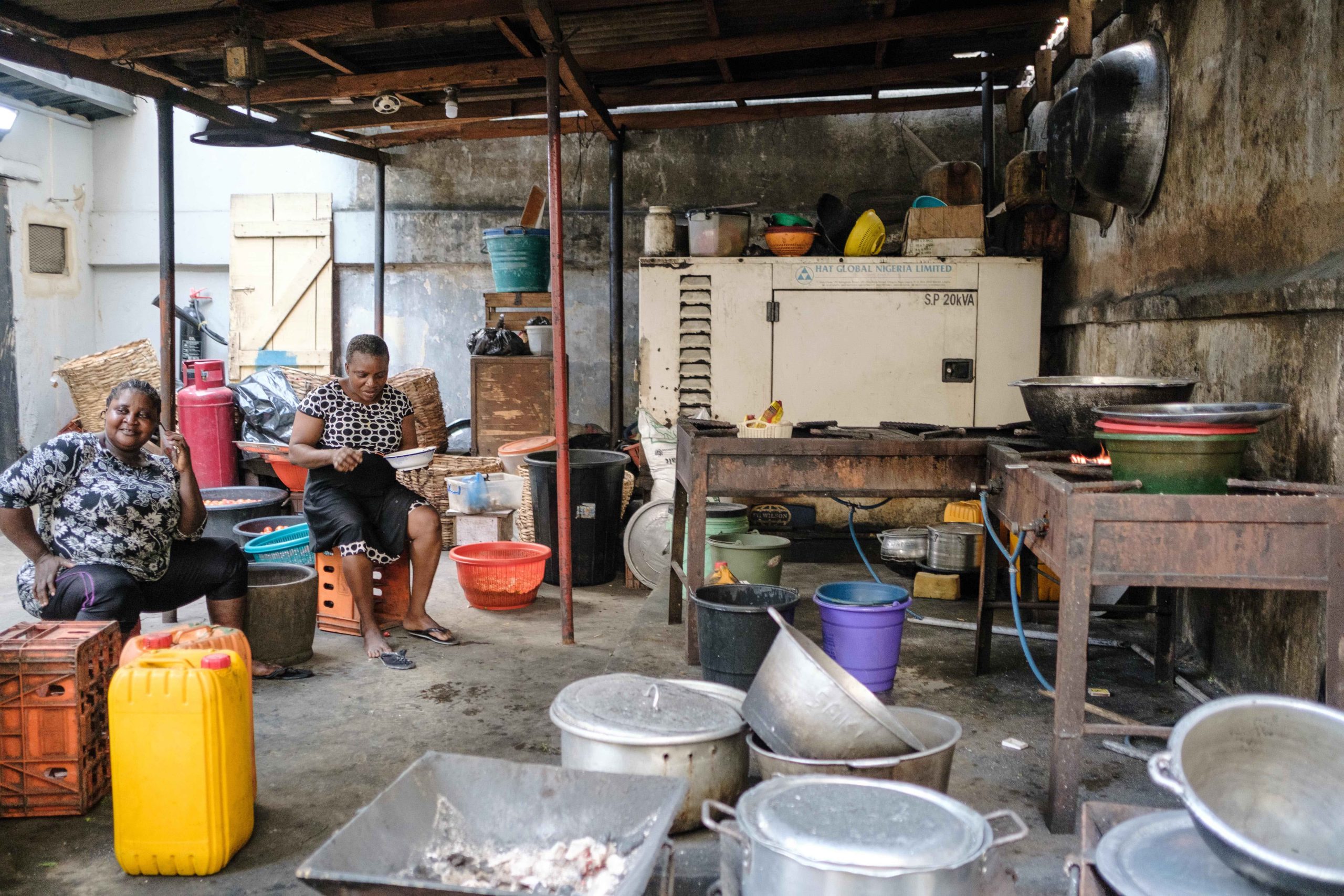
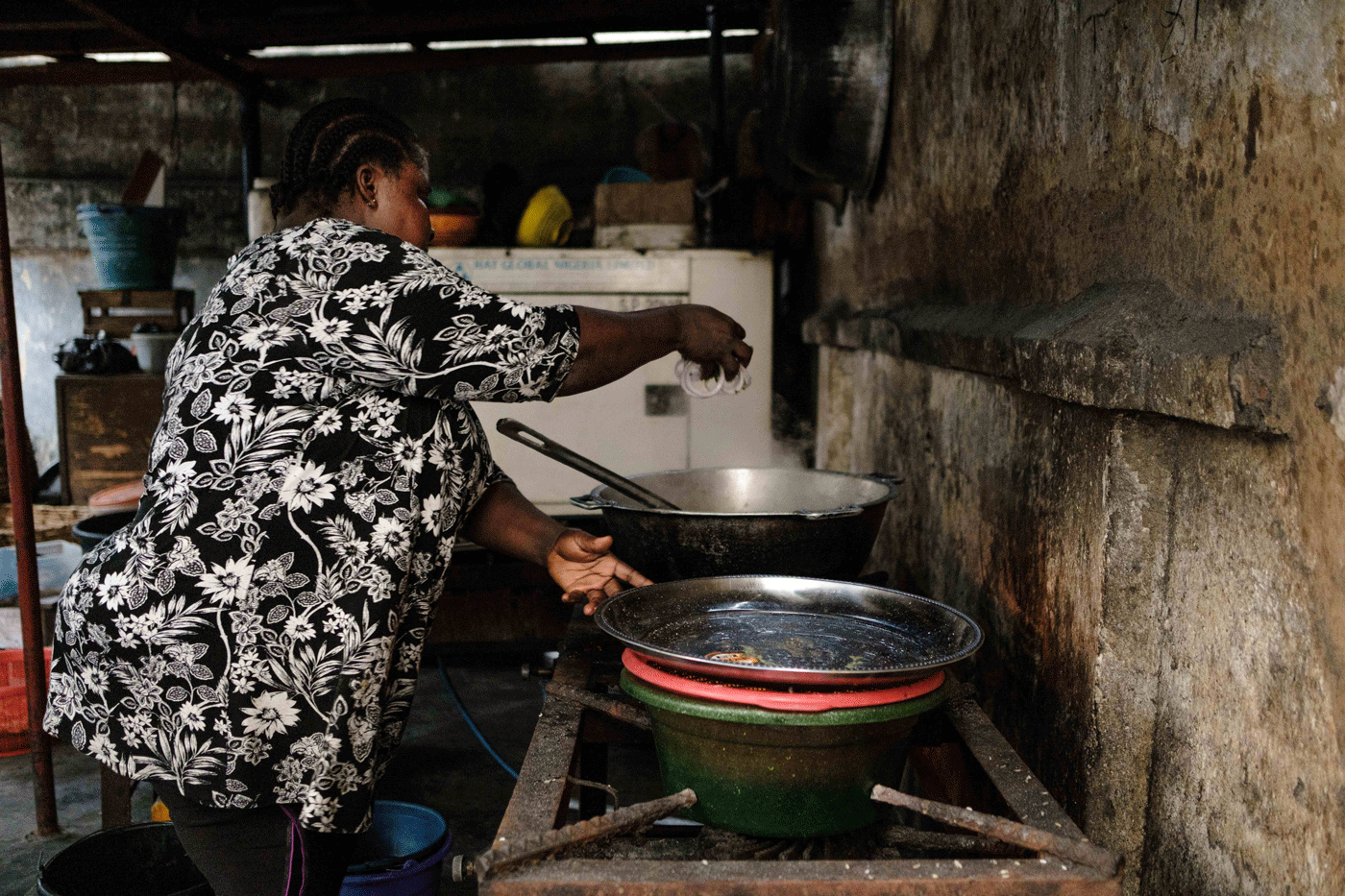
The buka is currently managed by Bukky, the third of Alhaja Adebayo’s four children, who takes care of the finances and has expanded the buka’s services to include food delivery and event catering. Although she recounts helping out at the restaurant in her early teens, she, and her siblings were fully focused on their school activities at the insistence of their mother. Having never had a formal education, Iya Eba has prioritized providing her children with the best education possible, supporting her son, Tunji, to pursue two master’s degrees in the United Kingdom. Ogunleye, Iya Eba’s thirteen-year-old grand-daughter, has also began to help out with chores such as washing and cleaning the buka when not in school. If and whenever Iya Eba decides to take a step back from the buka, the seeds for continued operations and service to her community have been planted.
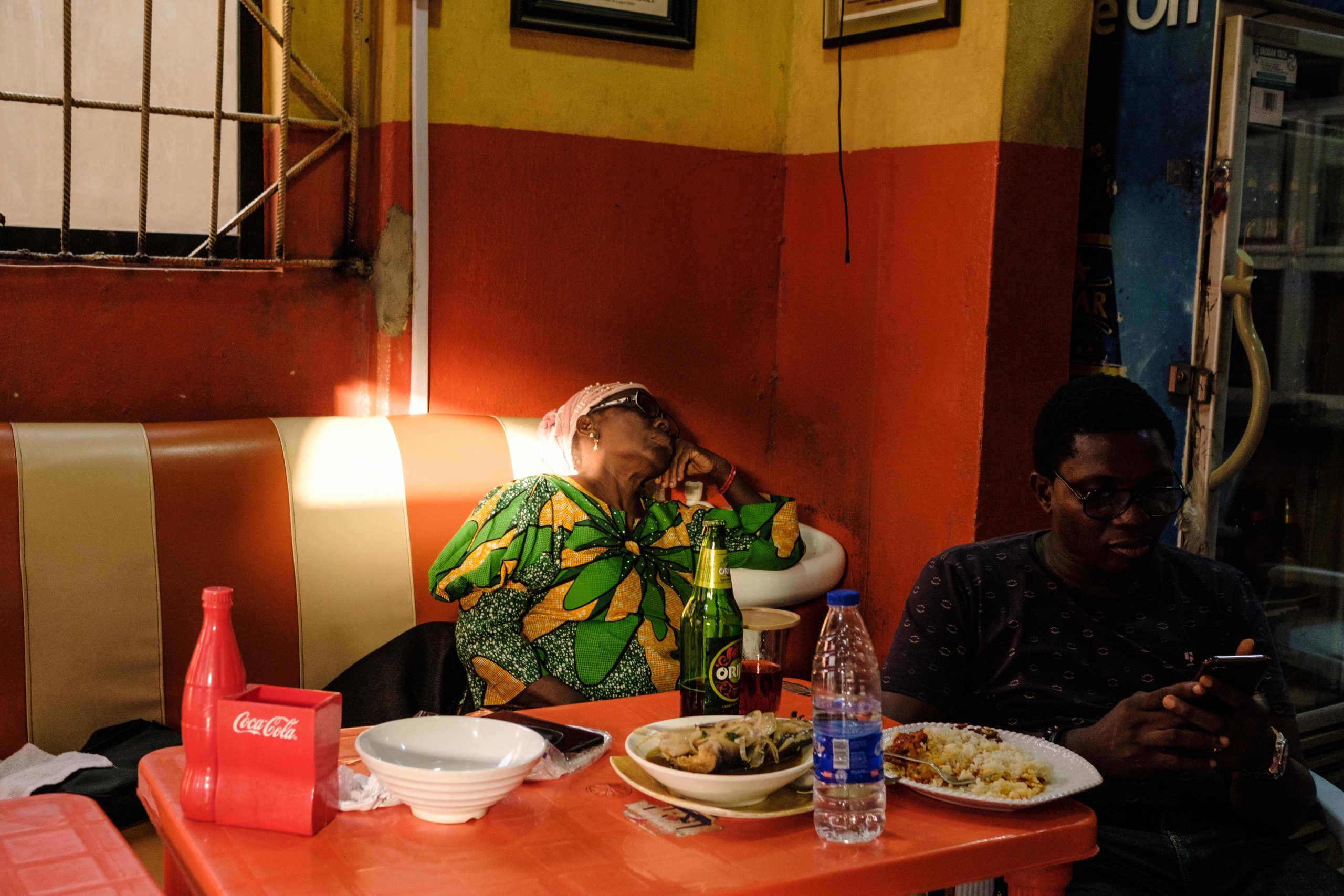
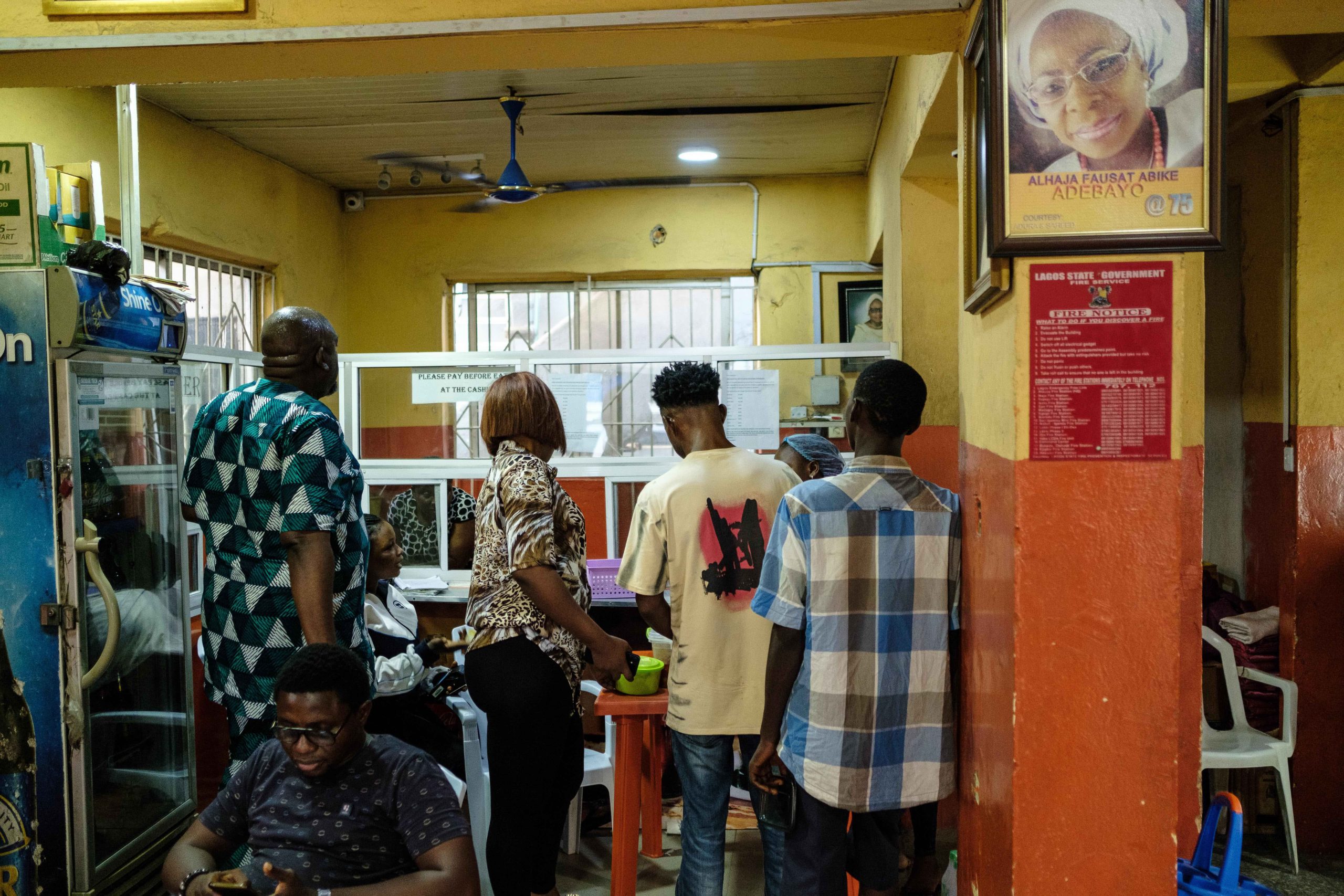
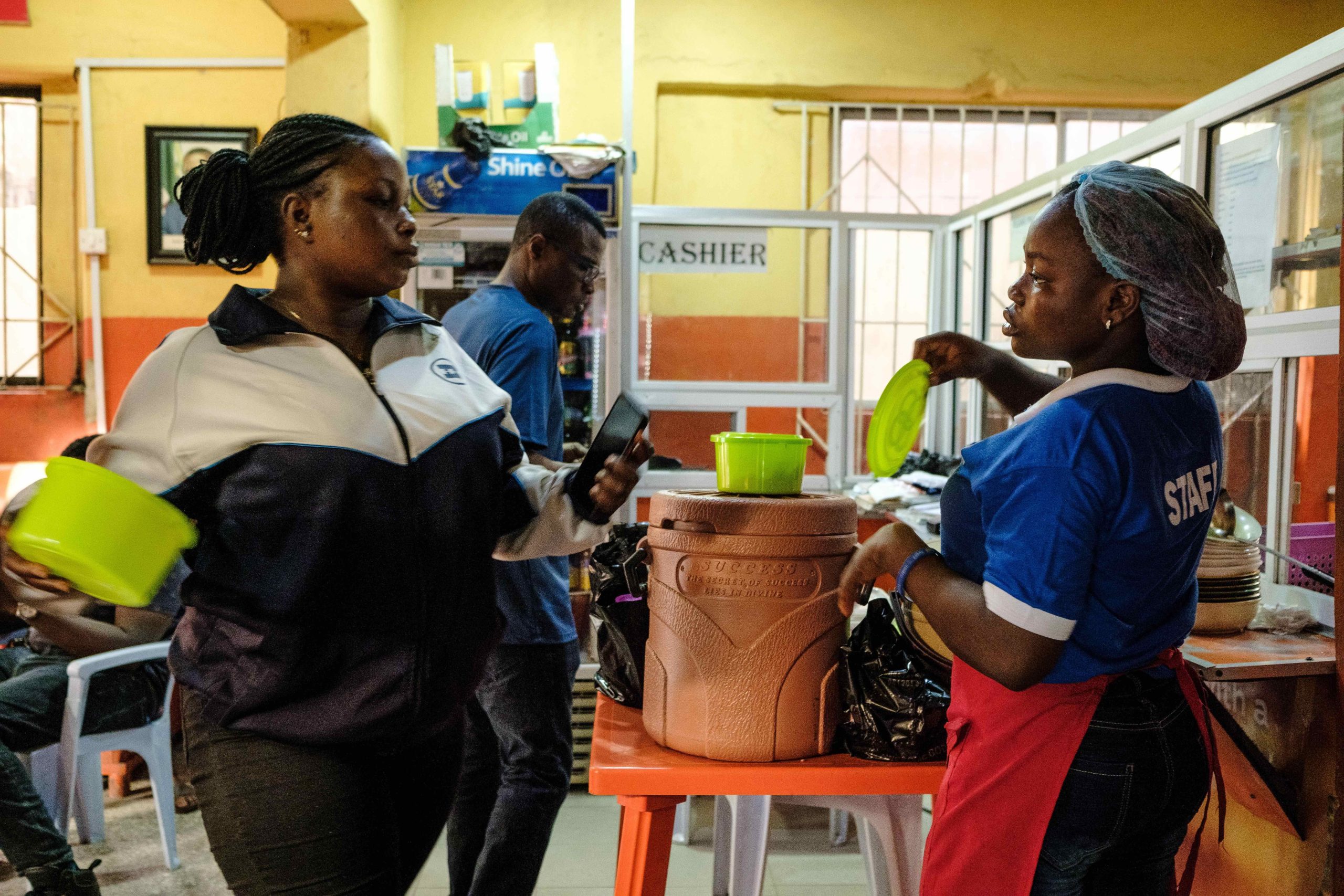
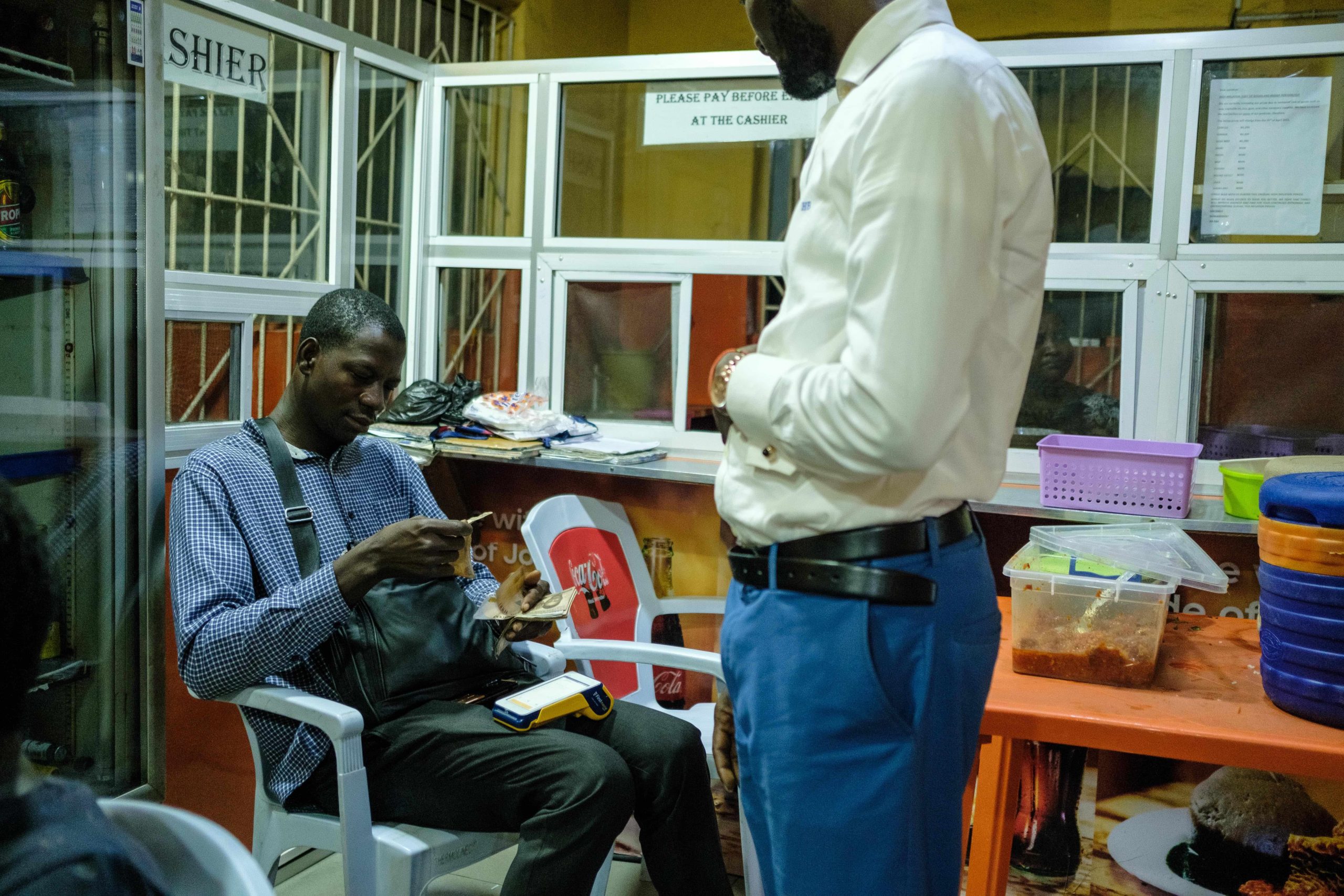
BACK TO NEW LAGOS
On the drive back to Oniru, through Ikoyi, through Victoria Island, I chuckled after recalling a review of Iya Eba posted on one of the more popular food blogs typically known for reviewing more fashionable restaurants in Lagos. One of the comments was that ‘the customer service in that place is so terrible’. In Lagos, and especially its more affluent areas where most of these upscale restaurants are located, money talks. Or more accurately, money makes people talk. No sooner one walks into a fancy restaurant than you are greeted by over-enthusiastic waiters raining questions on you: ‘table for two ma?’, ‘should I get the menu, or wait till your friend arrive?’, ‘just checking if the food is to your liking sir’. It’s as though they know that the food will not justify the price you pay for it, even if one excludes the 15 per cent service charge. I almost commented in this blog, to let them know that in this rapidly changing megacity, Berkeley Street did not get the memo that waking up before sunrise every day to provide people with one wrap of eba, ewedu and pepper stew with two pieces of meat for less than N1,000 (with no service charge) is no longer counted as a service. The bloggers clearly didn’t get the memo that Lagos no send anybody⎈
